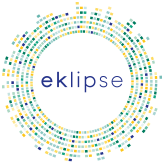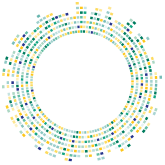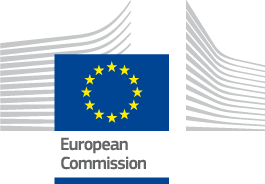Request > Impact evaluation framework for Nature Based Solutions
Nature-based Solutions to Promote Climate Change Resilience in Urban Areas – developing an impact evaluation framework.
Requester: European Commission’s Directorate-General for Research & Innovation (DG R&I)
Summary
Type of request: Knowledge synthesis
The aim of this request is to devise an impact evaluation framework that can guide the design, development, implementation and assessment of NBS demonstration projects in urban contexts. The framework takes into account insights from recent studies into the mapping and assessment of ecosystems and their services, ecosystem‐based adaptation projects, and relevant information on climate adaptation, natural water retention, green infrastructure, greening cities and other European Commission-based initiatives.
Reference: First Knowledge Synthesis Process
Expert Working Group
- Christopher Raymond (Swedish University of Agricultural Sciences) (co-chair)
- Carlo Calfapietra (National Research Council, Rome) (co-chair)
- Niki Frantzeskaki (Erasmus University Rotterdam) (co-chair)
- Corina Basnou (Centre for Ecological Research and Forestry Applications (CREAF), Barcelona)
- Mark de Bel (Deltares, Utrecht)
- Pam Berry (University of Oxford)
- Margaretha Breil (Fondazione Eni Enrico Mattei (FEEM) and the Euro-Mediterranean Centre on Climate Change (CMCC))
- Marco Cardinaletti (EUROCUBE srl)
- Vera Enzi (European Federation of Green Roof and Wall Associations)
- Davide Geneletti (University of Trento)
- Nadja Kabisch (Humboldt-Universität zu Berlin)
- Leor Lovinger (International Federation of Landscape Architects Europe)
- Ana Monteiro (University of Porto)
- Mihai Razvan Nita (University of Bucharest)
- Holger Robrecht (Local Governments for Sustainability, European Secretariat)
Contact points
- KCB Focal Point: Heidi Wittmer
- EMB Contact Point: Marie Vandewalle and Juliette Young
Final outputs and outcomes:
Final report (2017 )Erratum: The acronym PET in Table 5 of the NBS report (page 11) should read as Physiological Equivalent Temperature.
Workshop report (2017)
Workshop policy brief (12.2016)
Evaluating the impact of nature-based solutions: A handbook for practitioners (05.2021)
It is important to note that the results of these activities present an initial set of indicators and assessment methods that are recommended in the literature on the assessment of NBS impacts. The study focuses on the assessment of NBS to support climate resilience in urban areas, but did not consider the applicability of NBS for disaster reduction. The impact assessment framework presented here will be adapted in the future when projects begin to apply it.

Framework illustrating the relationships among elements of biophysical and social systems, climate resilience challenges and the NBS actions, impacts, indicators and methods for addressing each challenge.
Impacts in Science
Citations of the Report in scientific articles (link to Google scholar)
Citations of the paper Raymond et al. (2017) in other scientific articles (link to Google scholar)
Webpages:
Ecosystem Services Partnership
AIGUES
Impacts in Society
Impacts or Practitioners
Impacts in Policy
1) European Commission: Enhancing Resilience Of Urban Ecosystems through Green Infrastructure
2) European Parliament: Nature-Based Solutions. Concept, opportunities and challenges.
Impacts in Projects
1) NATURVATION:
1.1- Urban Nature Atlas: A database of Nature-Based Solutions across 100 European cities.
1.2- Nature-based solutions in European and national policy frameworks.
1.3- Eklipse, NATURVATION and ICLEI webinar on Exploring financing options for greener cities – Strengthening the capacity of local stakeholders to explore appropriate finanicing arrangements for nature-based interventions
2) OPERANDUM :
2.1 Monitoring criteria of goals for effective reduction and prevention of risks related to natural hazards
3) NAIAD
3.1- Deployment of the community-based monitoring system and implementation of the platform
3.2- General framework for economic assessment of Nature Based Solutions and their insurance value
4) RESILIENT EUROPE from the URBACT :
4.1- Ecomodernizing infrastructures with nature-based solutions for urban resilience (resilient ecosystems)
5) ThinkNature :
5.1- Dialogue steering statement papers and dialogue outcomes for sustainable urbanization in cities
5.2- Webinar: NBS: Concept, Practices and Benefits
6) UNALAB: Performance and impact monitoring of nature-based solutions
7) CLEVER Cities
7.1- Barriers and success factors for effectively co-creating nature-based solutions for urban regeneration
Nature‐Based Solutions (NBS) are solutions to societal challenges that are inspired and supported by nature, which are cost‐effective, provide simultaneous environmental, social and economic benefits, and help build resilience. Such solutions bring more, and more diverse, nature and natural features and processes into cities, landscapes and seascapes, through locally adapted, resource‐efficient and systemic interventions [1]), and thus they simultaneously provide benefits for biodiversity and human well‐being.
Under Horizon 2020, NBS have been identified as a priority area for investment. Four NBS demonstration projects had been selected for funding for climate and water resilience in cities (SCC‐02‐2016] ). The purpose of these projects is to enhance resilience in urban areas in the face of climate change impacts such as temperature extremes, pollution, wind, drought and flooding, using nature‐based solutions. There exist studies that provided perspectives on indicators, knowledge gaps, barriers and opportunities for action on NBS , but to date a holistic framework has not been developed for the assessment of NBS impacts across a range of climate resilience challenges at different geographic scales. The European Commission Director General, Research and Innovation (EC DG R&I ) therefore requested the EKLIPSE project to provide a framework for NBS projects so that a common evidence and knowledge base for NBS can be built in the future.
Timeline
- Date request received: 28/10/2015
- Call for Experts: 05/2016
- Date of experts selection: 17/06/2016
This request came from the European Commission DG Research and Innovation to develop an assessment framework to evaluate the multiple benefits, disservices, trade-offs and synergies of Nature-Based Solutions (NBS). The request’s main purpose is to apply this framework to H2020-funded NBS demonstration projects for increasing urban resilience to climate change.
Answering the request
Selection of an Expert Working Group
EKLIPSE sent out a Call for Expertise (CfE) to answer this request and selected 15 experts from 117 applications in July 2016. These experts covered a broad range of expertise (natural and social sciences, practitioners, planners and architects) and geographical representation to form the EKLIPSE Expert Working Group (EWG) on Nature‐based Solutions to Promote Climate Resilience in Urban Areas. This expert working group worked closely with the other experts who applied for the call. This larger group supported the expert working group by suggesting sources of information, highlighting gaps in our current knowledge and reviewing the expert group’s outputs.
Methods protocol
The EKLIPSE EWG on Nature‐based Solutions to Promote Climate Resilience in Urban Areas devised the following objectives:
1) To develop an impact evaluation framework with a list of criteria for assessing the performance of NBS in dealing with challenges related to climate resilience in urban areas;
2) To prepare an application guide for measuring how NBS projects fare against the identified indicators in delivering multiple environmental, economic and societal benefits;
3) To make recommendations to improve the assessment of NBS projects’ effectiveness, including the identification of knowledge gaps according to the criteria presented in the impact evaluation framework.
The EWG methodological approach involved a quick scoping review of the literature combined with expert consultation within and outside the EWG. The EWG selected ten challenges to consider in the impact assessment framework.

The ten climate resilience challenges considered in this impact assessment framework.
Finalisation
In August, the expert group produced a draft protocol made open for comment until early September. The review process resulted in feedback from 22 individuals and organisations. The expert group completed their draft report in November, and it was then opened for consultation through a virtual focus group, an external expert review and public consultation. The last two steps resulted in 10 reviews.
This document report is intended to be used as a reference document by members of current and future European projects with interest in NBS in urban areas and practitioners seeking to compare the effectiveness of NBS design, implementation and evaluation. This report intends not to define NBS but rather provide examples of indicators and methods for assessing impacts of NBS that may be applied in a range of different ways across urban areas in Europe.




